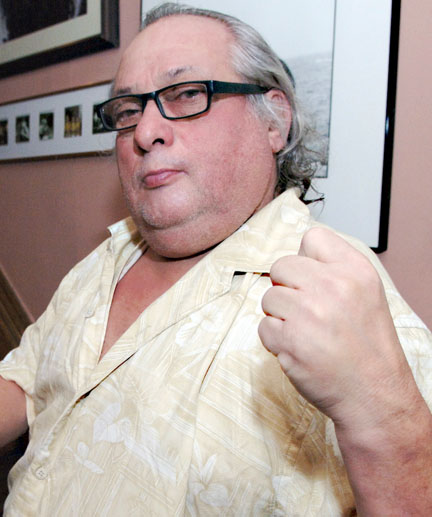As the Law Society Tribunal awards costs of almost $365,000 against
Harry Kopyto in relation to his long-running bid for a paralegal licence, it has ordered another practitioner who also went through a drawn-out good-character hearing to pay just $1,000 to the Law Society of Upper Canada.

In the case of
John Charles West, the law society had challenged his application for a paralegal licence in relation to his criminal convictions for theft in 2004. In that case, he had taken money from a client he had successfully represented while working for a government agency that helps injured workers appearing before compensation tribunals.
The law society challenged West’s application on the basis that his explanation of the circumstances to one of its investigators was different from the one given in court at the time he pleaded guilty.
West’s good-character proceedings were also long with rulings on the issue dating back to 2010. He did, however, succeed in his appeal of two of the dismissals of his licensing application with new hearings ordered in both cases. His latest appeal was unsuccessful.
In Kopyto’s case, the good-character proceedings have been going on since 2009 after the disbarred lawyer applied for a licence to practise as a paralegal.
While Kopyto has vowed to appeal the tribunal’s rejection of his licence, it has now ordered him to pay the law society $312,900 for legal fees as well $51,600 for disbursements.
“This proceeding was prolonged because of Mr. Kopyto’s insistence on eliciting, day after day, evidence bearing only tangential relevance to the issues, and the repetitive and rambling nature of his interventions,” wrote tribunal member Margot Blight in the hearing division’s recent costs decision.
In West’s case, the law society had sought $18,000 in costs.
“The Law Society acknowledged that costs are not ordinarily sought by the Law Society from an unsuccessful applicant in a grandparent paralegal good character hearing such as this due in part to the recognition that denial of a licence is likely to have a material economic impact on the unsuccessful applicant,” wrote Bencher Malcolm Mercer for the panel.
“However, the Law Society notes that Mr. West has continued to practise for some time as a result of the lengthy history of this matter, as described above, and that there have been significant previous costs incurred without orders having been made against Mr. West.”
In coming to the much lower costs figure, Mercer noted “the difficult procedural history which has imposed significant unrecoverable costs on Mr. West.”
“While Mr. West was successful twice on appeal, no costs were ordered in his favour in those appeals or in respect of the two hearings from which he successfully appealed,” he wrote.
“Accepting that Mr. West’s conduct of this appeal was irregular in several respects, we do not accept that this had a material effect on the costs incurred by the Law Society,” he added.
“We also consider that these irregularities arose, at least in part, from the difficult history of this matter and because Mr. West elected to represent himself on appeal in light of the legal costs previously incurred by him.”

 In the case of John Charles West, the law society had challenged his application for a paralegal licence in relation to his criminal convictions for theft in 2004. In that case, he had taken money from a client he had successfully represented while working for a government agency that helps injured workers appearing before compensation tribunals.
In the case of John Charles West, the law society had challenged his application for a paralegal licence in relation to his criminal convictions for theft in 2004. In that case, he had taken money from a client he had successfully represented while working for a government agency that helps injured workers appearing before compensation tribunals.